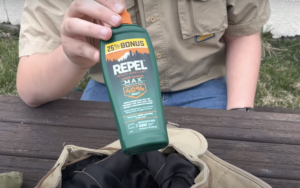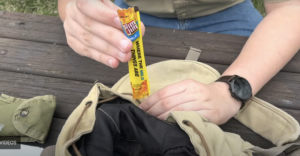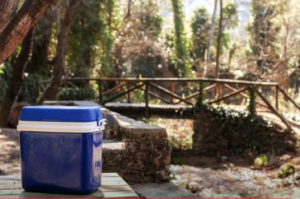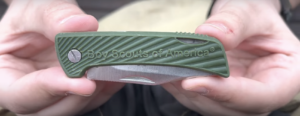A week at Boy Scout camp is an exciting blend of adventure, camaraderie, and skill-building. Upon arrival, you’ll settle into your campsite, setting up tents and getting to know fellow scouts. The days are filled with a variety of activities, ranging from hiking, swimming, and canoeing to learning essential scouting skills like fire building, knot tying, and first aid.
The Start To Each Day
Each morning typically starts with a flag ceremony, fostering a sense of community and pride. You’ll have opportunities to earn merit badges in areas that interest you, such as camping, fishing, or environmental science. Evenings often include campfires where scouts share stories, sing songs, and enjoy skits, creating lasting memories.
What To Bring
 When preparing for a week at Boy Scout camp, it’s essential to pack wisely to ensure a comfortable and enjoyable experience. Start with your scout uniform, as you’ll need it for flag ceremonies and official events. Bring a variety of clothing, including moisture-wicking T-shirts, long-sleeve shirts for sun protection, lightweight shorts, and long pants for cooler evenings. Don’t forget extra underwear and socks, along with comfortable hiking boots and a pair of sandals for relaxing at the campsite.
When preparing for a week at Boy Scout camp, it’s essential to pack wisely to ensure a comfortable and enjoyable experience. Start with your scout uniform, as you’ll need it for flag ceremonies and official events. Bring a variety of clothing, including moisture-wicking T-shirts, long-sleeve shirts for sun protection, lightweight shorts, and long pants for cooler evenings. Don’t forget extra underwear and socks, along with comfortable hiking boots and a pair of sandals for relaxing at the campsite.
Food Necessities

At Boy Scout camp, typical food provided usually includes hearty staples designed to fuel active days. Meals often consist of items like burgers, hot dogs, pasta, sandwiches, and a variety of sides such as baked beans, salads, and fruit. Breakfast may include eggs, pancakes, oatmeal, and cereal, while dinner often features grilled meats or casseroles, complemented by vegetables and desserts like cookies or brownies. Camp kitchens typically focus on simple, nutritious meals that cater to large groups.
 If you need to bring your own food due to dietary restrictions or personal preferences, consider packing a range of non-perishable items. A scout favorite is the slim Jim or beef jerky. If perishable items are necessary, a small cooler will do the job. There are a variety of coolers available. A great resource for all things coolers, ice packs and how to pack your cooler can be found on Coolers On Sale, which provides ratings and reviews of all things coolers. Opt for easy-to-prepare meals such as instant oatmeal, canned soups, or pasta with sauce. Include plenty of snacks like granola bars, trail mix, fruit, and crackers to keep your energy up throughout the day. Don’t forget essentials like a reusable water bottle, a mess kit for eating, and any necessary utensils. If refrigeration is available, you might also pack some fresh fruits, vegetables, cheese, or deli meats. Make sure to check with camp leaders about storage options (bear proof storage is necessary) and any specific guidelines regarding food to ensure a smooth experience at camp.
If you need to bring your own food due to dietary restrictions or personal preferences, consider packing a range of non-perishable items. A scout favorite is the slim Jim or beef jerky. If perishable items are necessary, a small cooler will do the job. There are a variety of coolers available. A great resource for all things coolers, ice packs and how to pack your cooler can be found on Coolers On Sale, which provides ratings and reviews of all things coolers. Opt for easy-to-prepare meals such as instant oatmeal, canned soups, or pasta with sauce. Include plenty of snacks like granola bars, trail mix, fruit, and crackers to keep your energy up throughout the day. Don’t forget essentials like a reusable water bottle, a mess kit for eating, and any necessary utensils. If refrigeration is available, you might also pack some fresh fruits, vegetables, cheese, or deli meats. Make sure to check with camp leaders about storage options (bear proof storage is necessary) and any specific guidelines regarding food to ensure a smooth experience at camp.

Don’t Forget The Creature Comfort Items
A good-quality sleeping bag, sleeping pad, and tent are crucial for restful nights under the stars. Personal items like toiletries, a quick-dry towel, sunscreen, and insect repellent will help keep you comfortable and healthy. For meals, pack a mess kit that includes a plate, bowl, utensils, and a durable water bottle to stay hydrated. It’s also helpful to bring a flashlight or headlamp with extra batteries, a notebook for notes or badges, and any personal sports equipment for fun during downtime. Lastly, include trash bags to keep your area tidy and your scout handbook for reference.